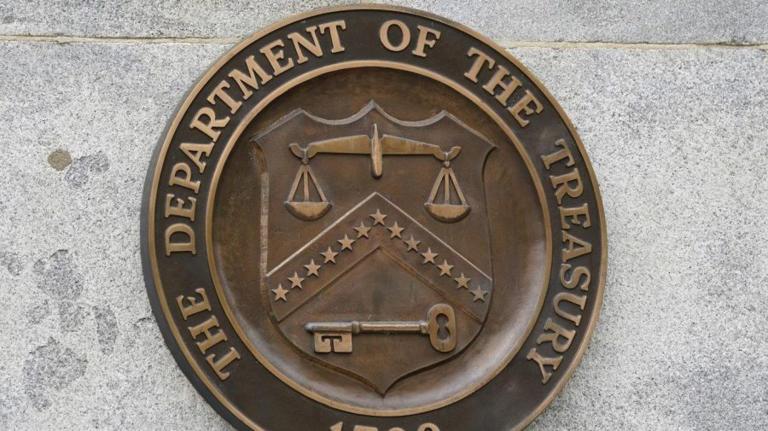
Treasury slaps sanctions on alleged funding network for Houthis
The Treasury Department on Thursday slapped sanctions on an alleged network sending Iranian funds to Yemen’s Houthi rebels amid the group’s escalated attacks at shipping vessels in the Red Sea.
The head of the Currency Exchanges Association in Yemen, along with three exchange houses in Yemen and Turkey, will face sanctions from the Treasury Department for “facilitating the flow of Iranian assistance to Houthi forces and their destabilizing activities,” the Treasury announced Thursday.
“These persons have facilitated the transfer of millions of dollars to the Houthis at the direction of U.S.-designated Sa’id al-Jamal, who is affiliated with Iran’s Islamic Revolutionary Guard Corps-Qods Force (IRGC-QF),” the department wrote in a statement.
The Sa’id al-Jamal network relies on a group of exchange houses to move Iranian funds to Houthi-aligned firms in Yemen, which are ultimately transferred to the rebel group or affiliated businesses, it added.
The Houthis have escalated attacks on vessels in the Red Sea in recent weeks with hopes of curbing Israeli airstrikes and ground attacks in Gaza amid Israel’s war with Hamas. The rebel group started by targeting Israeli-linked ships, but recent attacks have either hit or nearly missed ships that do not have any clear ties to Israel.
The escalated aggression from the Houthis prompted several major shipping companies to suspend operations in the Red Sea and reroute their movement earlier this month. The halt in some operations impacted global oil prices and posed a risk to shipping times and greater delays.
The Treasury Department on Thursday said the Houthis’ continued attacks have “sharply curtailed the free flow of commerce through the region and represent a clear violation of international law.”
Nabil Ali Ahmed Al-Hadha, the president of the Currency Exchanges Association in Yemen, the Nabco Money Exchange and Remittance Co., Al Aman Kargo Ithalat Ihracat Ve Nakliyat Limited Sirketi (Al Aman) and Houthi-run Al Rawda Exchange and Money Transfers Company (Al Rawda) are all facing sanctions, the Treasury Department said.
The IRGC-QF is accused of depositing millions of dollars into Al Aman, a Turkey-based courier service, which ships the funds to Yemen. The funds are then allegedly deposited into Nabco Money Exchange and Remittance Co. to fund the Houthis.
Nabil Al-Hadha served as a “financial intermediary,” and has received millions of dollars from the IRGC-QF, according to the Treasury. Some of these funds are deposited into Houthi-run accounts, including Al-Rawda.
“Today’s action underscores our resolve to restrict the illicit flow of funds to the Houthis, who continue to conduct dangerous attacks on international shipping and risk further destabilizing the region,” Under Secretary of the Treasury for Terrorism and Financial Intelligence Brian E. Nelson said in a statement.
Nelson said the U.S. and its allies will continue to target such networks and Iranian backers that enable the Houthis’ activities.
The uptick in Houthi attacks has further fueled concerns over Israel’s war with Hamas escalating into a larger conflict in the Middle East.
Iranian-backed groups in Iraq and Syria have similarly launched increased attacks on U.S. forces across the Middle East, which began shortly after the Israel-Hamas war broke out following Hamas’s Oct. 7 incursion into Israel. Hamas’s Oct. 7 attacks killed about 1,200 people and involved the kidnapping of an estimated 240 people.
Iran last week separately threatened that the Mediterranean Sea could be “closed” if the U.S. and Israel continue to commit “crimes” in Gaza. Iran, which has long backed Hamas, accused the Israeli military and the U.S. — a close Israeli ally — of committing war crimes in Gaza.
More than 20,000 Palestinians have been killed in the violence since early October, according to the Gaza Health Ministry. Israel has largely resisted calls for a cease-fire with Hamas, arguing such a move would equal a victory for the militant group.
Source » msn





